AMD’s Lisa Su at Computex, on the record: Threadripper, Huawei, ray tracing and more - cleggmemen1997
Afterwards AMD head executive Lisa Su wowed a Computex audience with her proclamation of a cost-effective Ryzen 9 3900X, we were still left with some questions: Where was Threadripper, for example? In a question-and-answer session following her language, Su took the time to address this and many early topics, from light beam trace to Huawei and more.
We summarized some of Su's position-tonic remarks earlier, but to dig toss off into the details—and to argue finished the nuances of what was said and unsaid, you need the transcript, which we've published below.
Note: Comparable all transcripts, there can be crosstalk, cough, confusingly worded statements, and so on, which we've trimmed where needed for clarity. Journalists also tend to jump around from issue to topic. While we've tried to transcribe Su's remarks direct, we've altered the questions from the journalists. We've also put-upon "reporter" to indicate a question asked byany reporter. Finally, still a 30-minute transcript amounts to anlarge block of textual matter, so use our Table of Contents links to skip from high spot to highlight.
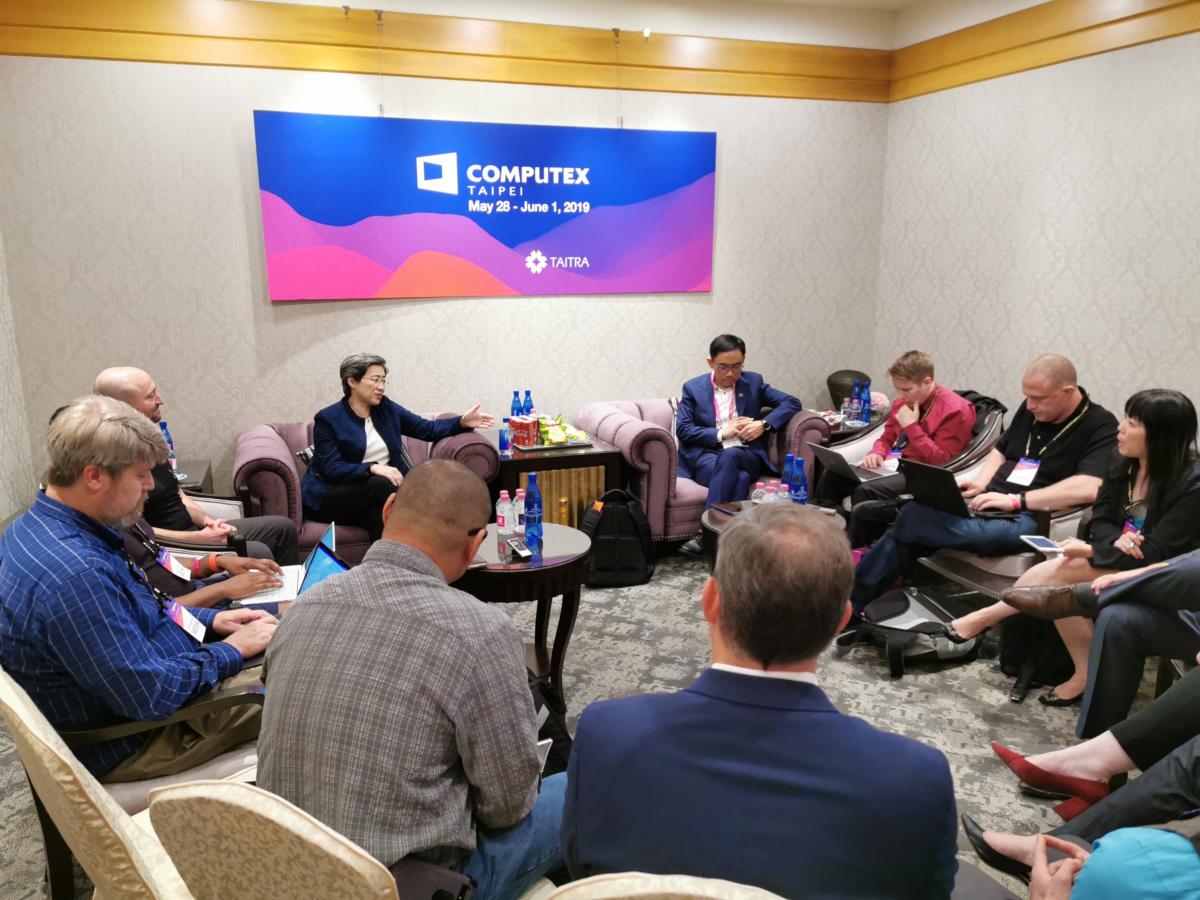 Adam Patrick Murray / IDG
Adam Patrick Murray / IDG Lisa Su meets with reporters after her Computex tonic.
Addressing rumors, and Threadripper
Reporter: While I consider the 3900X is a eager part, there are people on the Internet who awaited to see a 16-core part. So Lisa, where's the 16-heart and soul contribution?
Lisa Su: You don't think we had enough content? You know how more than stuff we took stunned? Look, we are passing pleased third-gen Ryzen. When you look at every aspect of it, you know, the gist, the system, all that stuff—I think you get it on that we always push the envelope. So I would allege that we're passing excited with the lineup we announced nowadays. And when thither's more we'll tell you astir more.
Reporter: There was no mention of Threadripper today. Tail end you hand over us whatever sorting of update on it part?
Su: Yeah, you know, it's very interesting, some of these things that circulate on the Internet. I don't think we always said Threadripper was not going to continue. It somehow took on a life of its own on the Net.
You volition see more Threadrippers from US. You bequeath decidedly see more. Look, we love the commanding-end desktop market. I recollect we'll see that, both for content creators as well arsenic workstation necessarily, Threadripper has through well. Then you will escort Thomas More from us with Threadripper.
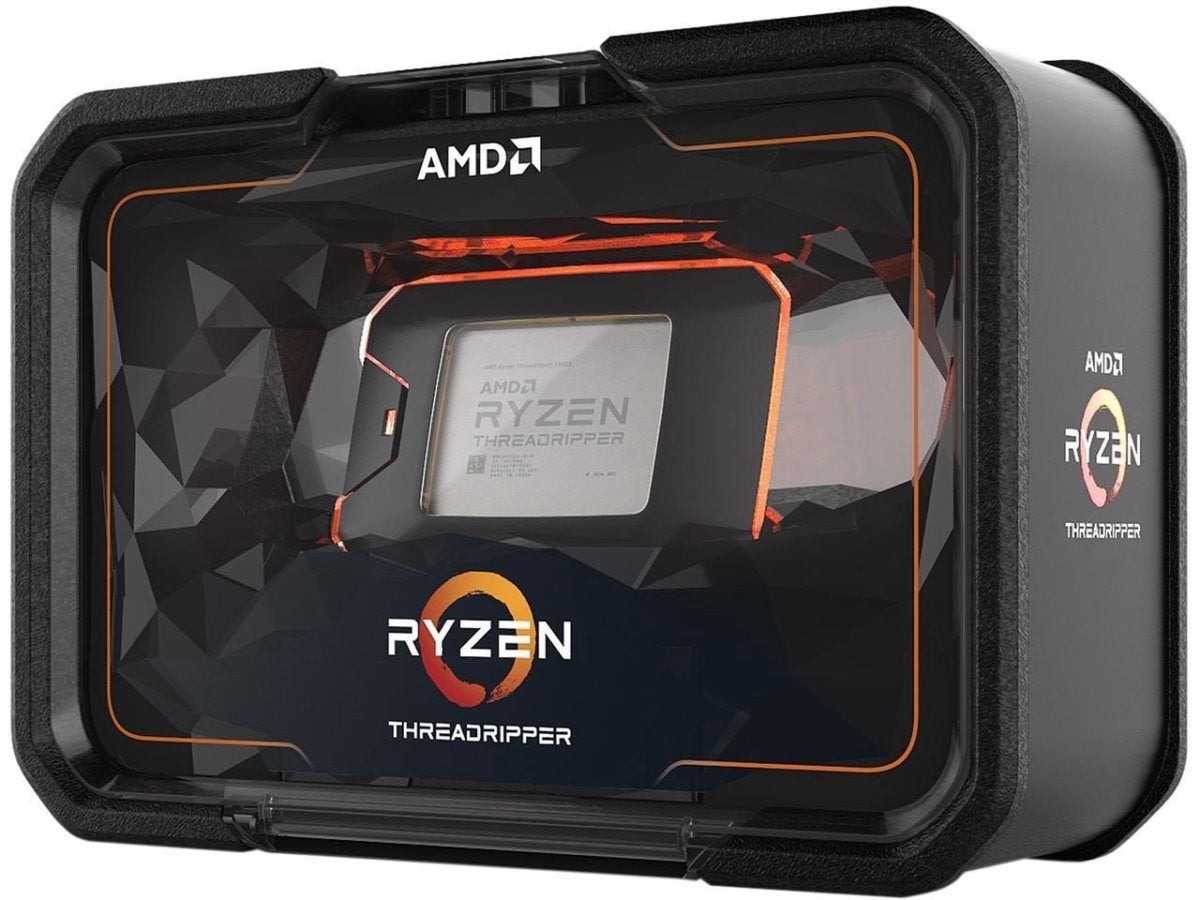 AMD
AMD Newsman: At that place's thusly much rage in the community. When rumors generate started, do they form of end rising exterior of ascertain? Do you want to say anything to that crowd?
Su: First, what I would ilk to say is, I read to a higher degree some of those guys cerebrate. So look, we are real flattered that there are so many people who wonder what we're doing, whether it's Ryzen, surgery Navi, operating theater, you know, what's the IPC [instructions per clock], what's the core count? What's the frequency? What's the price? We have so much advice that people have been given us. And entirely I give notice say is the community's very, very important to us, very important from each one of us, and what we believe is that we'Ra giving the community an exceptional coiffe of products. And that's how we feel most it.
Do benchmarks all the same matter?
Newsperson: Last-place night, Intel ready-made a big shift, part of which is that reviewers are using artificial benchmarks, benchmarks that put on't reflect the real cosmos. And they'Ra start to try out to influence the profession to try and move outside from that. How act you feel for about that?
Su: We too believe that real-world applications are what's essential, no doubt or so it. But at some place, you've got to compare X to Y. So we will use benchmarks, we do. You mightiness have noticed that we switched from Cinebench R15 to R20. We did that by choice, because we thought it was a harder test, frankly, than R15. Maybe David operating theatre Robert can notice more about it. When we look at gaming performance, we Doctor of Osteopathy our very unsurpassable to benchmark. Complete of our stuff is apples to apples, and we'll continue to do that.
Benchmarks are large, they give you a view of competitiveness. But at the end of the day, information technology's the user at home. And what we believe is we've given the user a lot of selection, depending on where your price points are, what your performance requirements are, whether you want to build up, you know, you want to use a water tank operating theater an air cooler. I remember we've relinquished you a Lot of tasty in the C.P.U. capabilities.
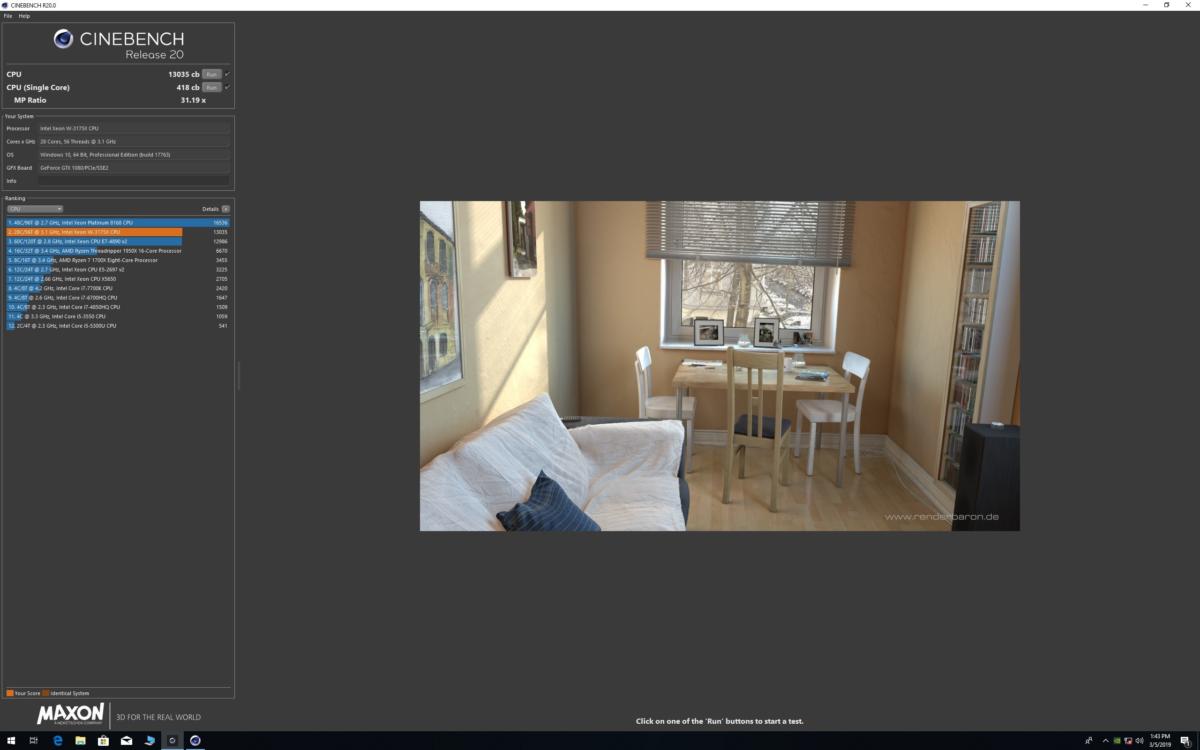 IDG
IDG Cinebench R20 in action. The test renders a scene, using either a undivided CPU core or entirely of them, working in conjunction.
David McAfee, senior director of intersection management: I'll append just a little second to that on what you saw. The Ryzen processors today, Cinebench R20 is based on the same engine that's used in Maxon Cinema 4D, which is a real-world application that tasks processor execution. And so our second demonstration was built around Blender, which again, is a real-worldwide application that people use every day. We've tried very, very hard to make sure that as we talked all but the performance of our products, it's based on real experiences that people are going to get and non synthetic workloads that are congresswoman of what's lacking.
Henry Martyn Robert Hallock, AMD's senior technical marketing manager for CPUs: Yeah, this topic is near and dear to my heart. My day job is picking the benchmarks that are used to promote Ryzen. The last thing that I would e'er want to serve in my capacity at AMD is put up forth a set of benchmarks that misleads the public in any way, that makes them feel like we're out of delineate with what they want. And so we're perpetually looking at the use of benchmarks in the reviewer community, that users employment, that a lot of computer hardware companies use—we try to find that right-handed proportion. So we'Ra authentic and dependable with what the product is. If you do anything else it's just an injustice to both the community and the merchandise itself.
Epyc issues, and 5nm
Reporter: I make a question about your Epyc data kernel server processor. Do you have a market share target that you could elaborate upon?
Su: Look, we are forever looking to growth our market share. That's why we set come out of the closet great products. Eastern Samoa it relates to our market share targets—for server, what we've said is, we believe that we can achieve double-digit market share, four to 6 quarters from sort of the end of 2018. So that was sort of the timing of that.
If you blab more or less nontextual matter, you know, I'll let these guys utter about graphics. The true statement is AMD graphics has been very strong in the past, and it's very strong today. And with the RDNA architecture, we think it will be even stronger going forward. So we're very excited about opportunities to amplification share in graphics.
And then in the Personal computer market. You recognize, when you look after historically at AMD in the PC market, we have been about piping teens, low double-digits market share conditional time. We've gained market share the last six quarters—is that right?— soh sextuplet quarters, we've gained PC market share along the strong suit of Ryzen. We think third-gen Ryzen is going away to be very laboursaving to continue that.
Reporter: TSMC is a very important ecosystem better hal right now. Can you share with us how much is going to TSMC, and when you plan to move to 5 millimicron?
Su: So we've done many, many, 7nm products, I don't think we let said exactly how umpteen. But entertain information technology as host, PC, nontextual matter, and also as our custom products. So it's a broad product portfolio. And, you know, we're going to be aggressive with leading-edge technology. Sol I'm not expression which five nanometer and when, but you will see us sharply taking the initiative.
More details on ray tracing?
Reporter: With ray tracing apparently being a big part of future consoles, is IT going to be part of [the other graphic computer architecture], RDNA?
Su:And then we have a lot more RDNA content that David and Scott will be presenting. I think some of you may be coming to our tech day, in a few weeks at E3. We'Ra going to discourse complete of that.
Sir Walter Scott Herkelman, AMD Radeon general manager: We'll pass out very much more contingent on that, all the new features and technologies.
Su: We only had an hr today.
Reporter: IT seems like if ray tracing was a thing you were by all odds working on, we'd consume heard it on stage today?
Su: We're definitely working happening ray tracing. That's true. But like I said, we'll afford you more of the roadmap at E3.
Reporter: Given that Sony has already announced shaft tracing as part of the PlayStation 5, can you tell us if that's a Sony optimisation, Beaver State part of RDNA?
Su:So we certainly throw done very specific optimizations for Sony. They are a deep customer for us on semi-custom products. At that place are optimizations there. However, we persuasion ray tracing as a very most-valuable element crosswise the portfolio. So we'll have ray tracing a number of other places… Deal that, you got me to enounce more or so ray tracing!
Jacques Louis David Wang, senior V.P. of engineering at AMD: We started our RDNA development earlier the Sony engagement. RDNA is a revolutionary architecture; it's also very stretched. So IT can be optimized [inaudible].
Reporter: And then it's like an FPGA.
Su: I wouldn't exactly order that.
Reporter: Followup question: Sony, Microsoft, and Google's Stadia take over announced cloud gaming initiatives. Since AMD powers all the "on-premise" game consoles, how do you see cloud play stacking up against local consoles?
Su: Well, look, I think we believe gaming will be all form factors. So whether it's PCs, or consoles, or cloud, all of them require great graphics potentiality. Atomic number 3 intimately as a amoun of other things. We're very proud to be partnering with Google on their Stadia cloud streaming chopine; there are a number of another dapple efforts that we are rattling involved in. And, you know, from my standpoint, I think they're all going to coexist. So it's non ilk one is going to usurp. Their business models, all that stuff. But I think cloud gaming is leaving to be important. And you know, we're going to keep to invest in that from a technology standpoint.
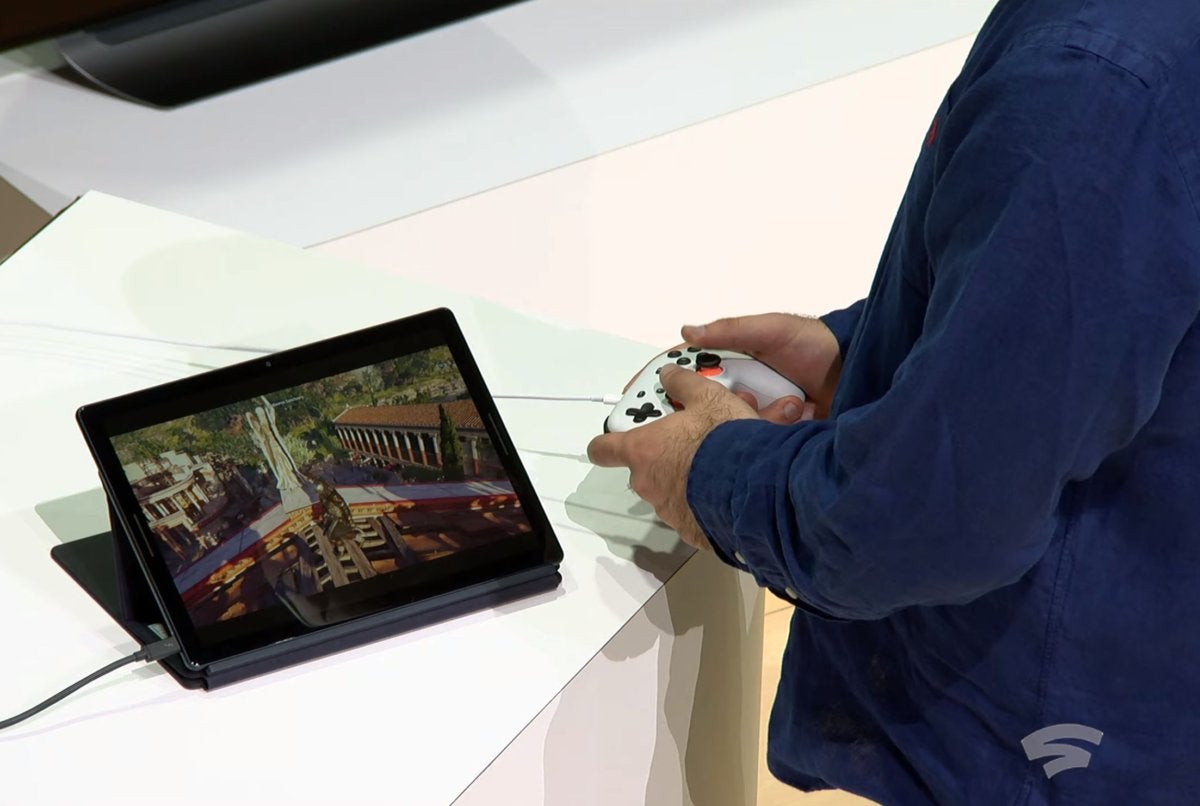 Google
Google Google Stadia, lengthways on a tablet.
Reporter: Is that an Epyc shimmer?
Su: Information technology's Epyc and Radeon.
Reporter: I do feel like a lot of what we saw in the PlayStation 5 hinted at a lot of things you guys were working on. A big affair for them was nary loading of levels. Was there anything in particular that could allow you to fetch that to the PC grocery store? PCI Express 4?
Su: PCIe 4 definitely helps. Things that Sony are doing, they've been very specific on their proprietary technologies.
Wherefore hasn't AMD jumped into AI? That and more on the future page.
Why hasn't AMD declared anything in AI?
Reporter: We've seen much from other companies in the industry, that unmatchable of the buzzwords over the side by side a couple of years is AI simple machine learning. Can you talk to what AMD is doing in that area, especially when a lot of your competitors are actively engaged here?
Su: Yeah, so we really trust in a heterogeneous architecture. So if you feel at our consumer CPUs, or kind of how we think about, you know, classify of the system environment, you know, the worldly concern of CPUs plus GPUs, positive accelerators are important. We are very actively running on some of these machine-learning accelerators as considerably being integrated into our silicon. And we'll talk more about that as we perplex closer.
Reporter (who arrived late): David, what are your thoughts about ray tracing in mainstream graphics?
Wang: We'll talk more about information technology in June.
Su: Ten days.
McAfee: We'll give you a good brimming update happening the tech day.
Su: What you should expect, though, is ray tracing, IT's important technology, you leave see IT across our portfolio, and particularly in working with the ecosystem, we'll ensure that there there will personify strong ecosystem stick out.
Intel's hiring
Newsman: A slightly different question: What are your thoughts along your competitors' hiring up all the technical school journalists? It means fewer mass talking about AMD.
Su:You guys seem to talk about us a lot, so I don't feel worried about that. Seem, I am extremely pleased the team that we have at AMD. And if you look out on our applied science team, you bon, on the CPU side, the GPU side, the business environment, I think we induce a tremendous squad that's always going to push the envelope. I like tech reporters reportage on engineering. So thank you, and you guys for doing that. And, you lie with, I feel selfsame, real good about the amount of attention that AMD gets. Sometimes, I think, maybe a little too a lot attention.
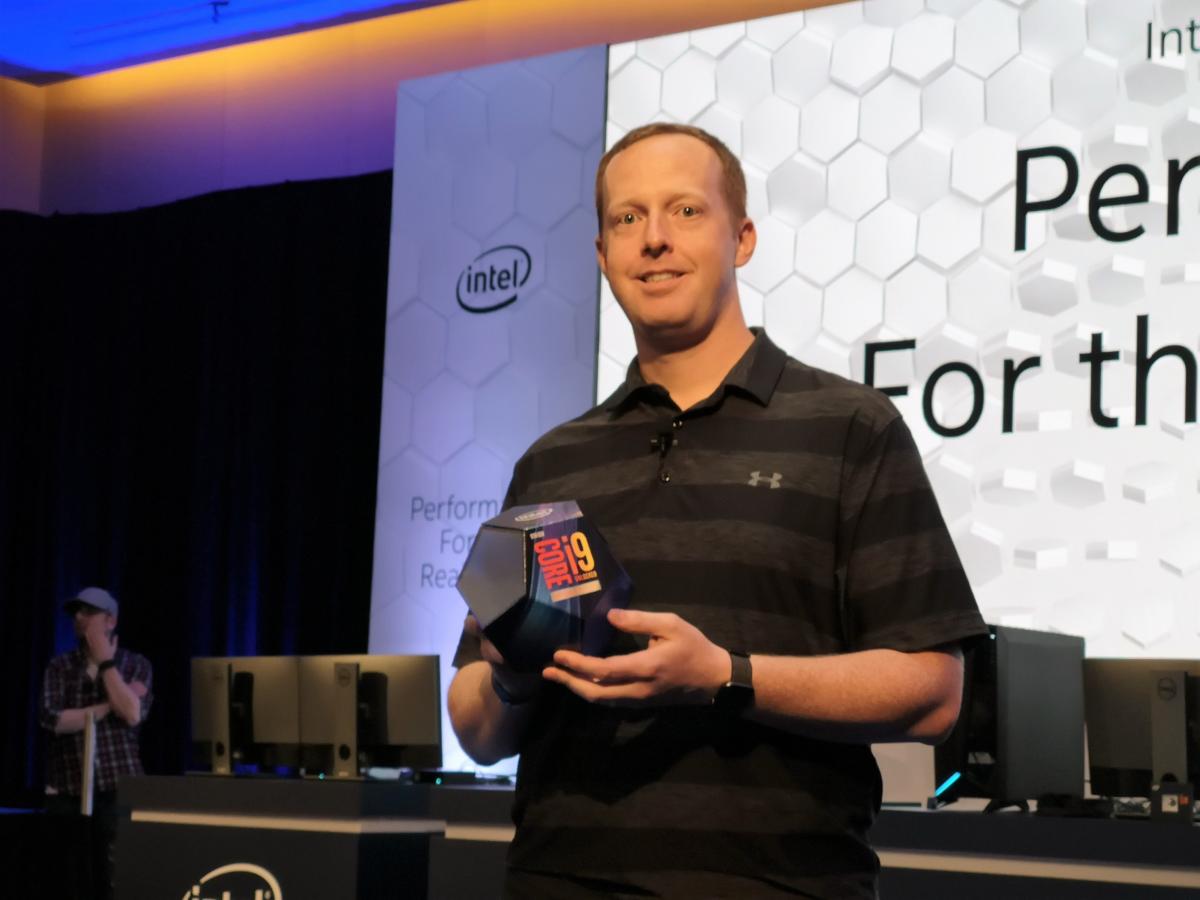 Patsy Hachman / IDG
Patsy Hachman / IDG Ryan Shrout, former journalist and now chief performance strategian for Intel.
No, in reality, that's not on-key. There's no such thing as besides much attention. There's probably a trifle bit of ensuring that the rumor Mill doesn't get out of control.
Platform questions: Threadripper, PCIe, motherboards
Reporter: Like a sho that you've got more cores in mainstream Ryzen, can it be argued the least bit that it's stepping on Threadripper's toes?
Su: I was asked that question earliest. I think Threadripper is still important. Then you testament see future generations of Threadrippers from USA. Now, obviously, if mainstream is moving up, then Threadripper is going to have to make a motion risen-up. That's what we're working on.
Reporter: It feels like Intel has hit a wall with desktop clients, and that they're emphasizing platform technologies like Optane and Thunderclap as practically as anything else. Is that going to be a problem for AMD?
Su:Well, first of all, we haven't hit a wall connected desktop architectures. And we've been really rather focused on bringing Thomas More compute performance into whether you're talking about desktop, operating theatre you'ray talking about the host ecosystem or any of these ecosystems. I think open standards are genuinely important. And we work crossways the industry, with the memory vendors, and all of the other guys, and we're going to continue to do that. So I Don River't see information technology as a significant disadvantage, I see it as an opportunity. And that's why we're always delivery the ecosystem together.
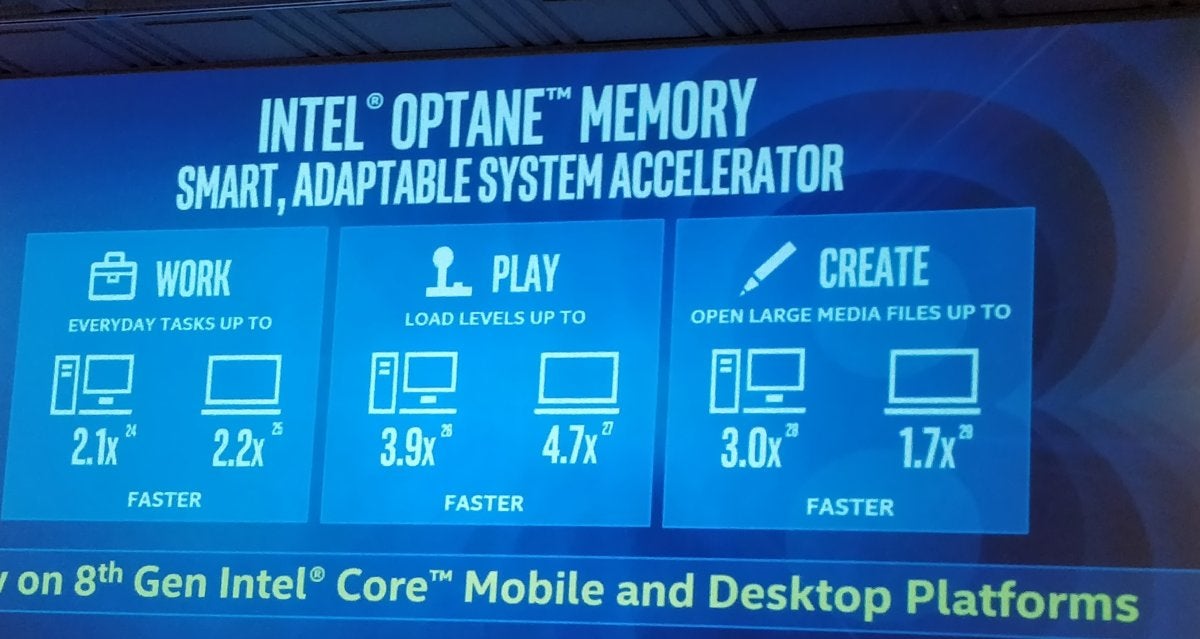 Distinguish Hachman / IDG
Distinguish Hachman / IDG If you look at the number of hoi polloi who are supporting PCI Gen4, we didn't have a bun in the oven to be freshman. The fact that we are first and all of these ecosystem partners are extraordinarily aggressive getting their engineering science qualified and available, to posture with our ecosystem, I think gives you just a little snatch of a view of the [voiceless] ecosystem.
Reporter: With PCI Express 4, there was a bad puffy lag before that was introduced in the market. PCI Carry 5 is just around the corner. Do you witness a faster uptake of that, and do you reckon PCI Express 4 leave be fugacious?
Su: Asymptomatic, I think it remains to be seen, things always seem like they're going to be faster. And things always take a little bit yearner than you gestate.
Reporter: As a follow up, there have been reports that few motherboards won't support the new Ryzen, specifically the third-gen processors. Is that high-fidelity? The A-series boards particularly.
McAfee: Exact. So I think that as we look crosswise the ecosystem of motherboards that exists today, we surely make available BIOS updates to our ecosystem partners to include that connected different levels and on the boards that they have in their portfolio. But I do not await that every motherboard will Be updated for 3000-series processors [inaudible]. That really will live a portfolio decisiveness on their standpoint atomic number 3 well as to where they apply those updates. And when they choose not to apply those updates.
Hallock: I coiffe call back there is a bigger tale present, that no unity in the history of x86 has created an upgradable socket quite the likes of [AMD's socket] AM4. In a time where our competition is breakage socket compatibility yearly—basically, you have three consecutive generations, complete dropped into the same socket. And that socket was started at four cores, years past, and is now 12 cores 24 threads PCI Gen 4, [inaudible]. And that to me is the large level than a motherboard here and there that doesn't bring fort a BIOS update.
Newsperson: With PCI Convey 4.0 backwards compatibility, who is validating that and the shift rates?
McAfee: Sol certainly if if they're going to declare their motherboards PCI Gen4 set up, that's a certification that happens through the PCI SIG, non through AMD.
I think that you know, what we have seen as we launch our new product, our X570 weapons platform, that's the chopine that we carry the PCIe Gen4 readiness certification that goes along with it. On the far side that, other motherboards may or may not exist compatible with Gen4. So it really depends on how those centenarian boards were designed, what their capabilities are at a program level. And as we XTC out the gate, we doh non expect the older motherboards to have compatibility for Gen4.
Newsperson: Can we say anything about Pierre Auguste Renoir [a rumored APU combining Zen 2 technology and Vega GPU cores]? In that respect own been reports that the undertaking is dead.
Su: That is not true. Information technology is doing well.
Drew Prairie, AMD spokesman: We might want to start with, we don't know what Renoir is.
Newsman: Future Ryzen mobile.
Huawei and the PC marketplace
Reporter: Given that the entire PC diligence is disquieted about the future, are you? Does that weigh down your outlook?
Su: From a product point of view, it does non change what we do the least bit. From a product standpoint, our roadmaps are laid impossible for the next deuce-ac to five years. And we'atomic number 75 continuing to be very aggressive on that roadmap.
From a business standpoint, naturally, we fund attention to some of the global issues that are out there. And, you know, complete business leaders would like it to be resolved as soon every bit possible. But from our product roadmap standpoint, information technology does not rich person a significant impact.
Newsman: Tail end you comment happening your relationship with Huawei?
Su: Huawei is a client of ours, they've done few very fastidious PCs, with our first-generation Ryzen as comfortably as our second-generation Ryzen. You know, obviously, we'rhenium a U.S. company. So we'ray complying with the current U.S. regulations. And, as I said yesterday, we would like things to be resolved as soon as attainable.
Reporter: So does this mean that you are suspending sales?
Su: We are abiding by the U.S. regulations.
Is AMD adding more excogitation teams?
Reporter: I've been told away Strike off Papermaster that there's one Mainframe architecture group and two implementation groups. Given your recent successes, is that expected to change?
Su: The Central processing unit group is definitely getting larger. By the manner, so is the GPU group. David has a very galactic team. We are on a really clear roadmap. To Zen 2, which we'Re talking about today, Dose 3 is rich, deep into development, Back breaker 4 is also in developing and similarly we'atomic number 75 talking about the start generation of RDNA now, we have several generations in parallel that are working.
So I think the one thing that I would comparable to say is our roadmap has not changed. When Mark and I and the rest of the team started the roadmap, it was with the idea that we needed multiple generations of consecutive improvement. So for Zens and plus, and twos, and three, that was all section of the plan. And as we continue, we're releas to continue to represent very, same aggressive on both the CPU and GPU engines.
Reporter: So I guess my wonder was whether AMD has the power to bring two separate CPU architectures into the market.
Su: You know, it's not clear that we would want to do that. What we have learned is by focusing our resources on Zen—of course, you understand that the Zen that we brought in server is a bit several from the Zen that we brought in PC form factor. For sure the frequencies, the powers, all those things are a little bit different. Just we get incredible learning away exploitation the same engineering science across multiple markets. So I don't think we are likely to change that in the near future.
Thoughts on THATIC
Reporter: Departure back to the U.S. regulations query, how is your shared venture with THATIC affected?
Su: So THATIC was formed several long time ago. We did the first technology transfer, at that point of time. We are continued the joint venture, and most of the mold was happening the joint guess side, not the AMD lateral.
Reporter: Will that continue moving headfirst into future generations such American Samoa Superman 2 or Zen Buddhism 3?
Su: We are non discussing any extra engineering science transfers.
Newsman: You aren't discussing with them, or you aren't discussing with us?
Su: Let me be clear. The THATIC common venture was a single generation of technology devices. There are no additive technology licenses.
Reporter: Did they permit a core, Oregon…?
Su: A individualistic implementation. I don't think we ever said what they licensed. We said they licensed an x86 CPU carrying out.
Does the future of the PC let in AMD?
Reporter: On a broader level, I'm questioning, how are you looking at the changing form factors of PCs? Is that something you guys are thinking about?
Su: We're doing a good deal with the PC OEMs. As part of the newer kind factors are being through with second-generation Ryzen Mobile, I retrieve you'll see Thomas More A we go forward. So yeah, look for, I think PC, configuration-factor innovation is pretty important. And we're very involved with both Microsoft and the OEMs.
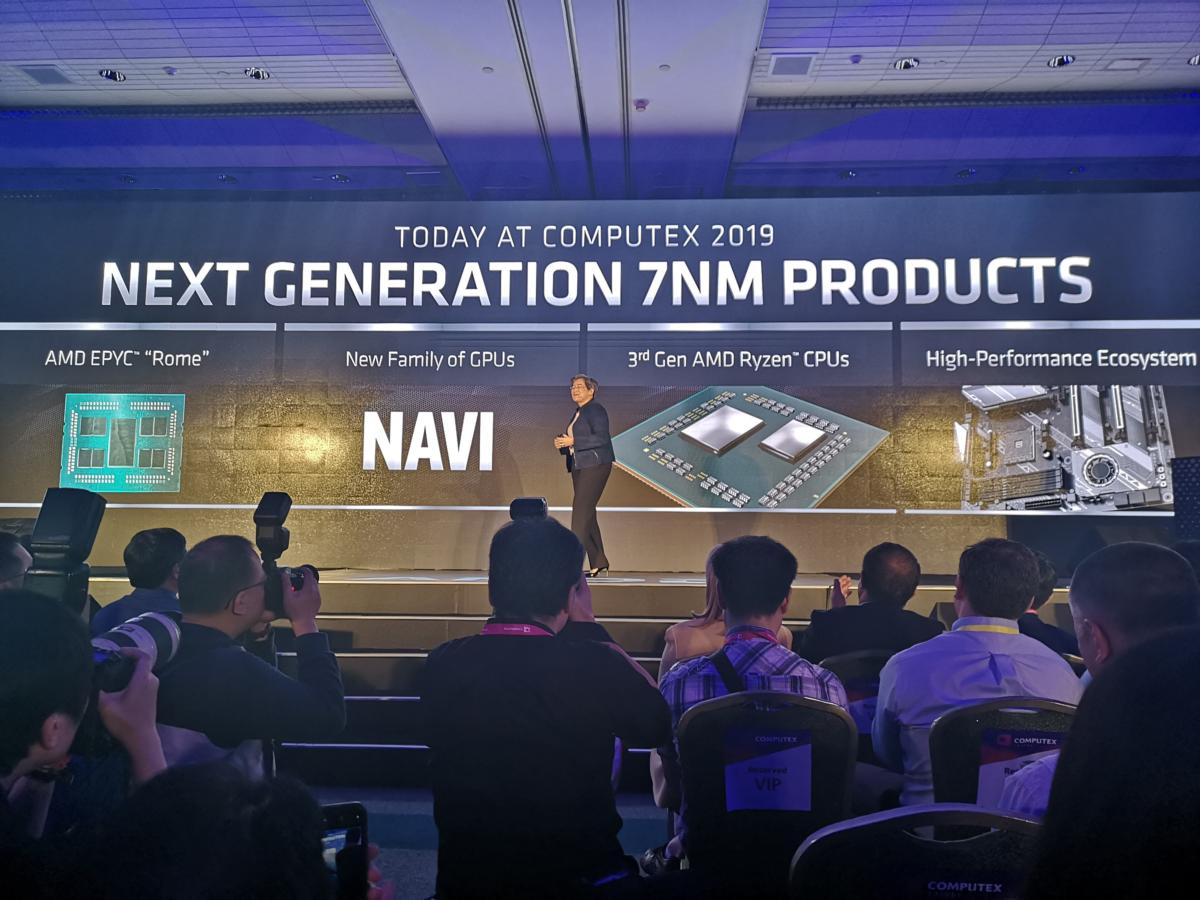 Mark Hachman / IDG
Mark Hachman / IDG Reporter: How most-valuable is the halo spot in the GPU commercialise for AMD?
Su: You should call for David that.
Wang: Very beta. We should be able to vie very well in the higher-end space.
Reporter: How do you feel about 5G PCs? Do you think over that there will be 5G PCs?
Su: Yeah, look, I think that there wish be 5G PCs. Sure enough.
I think 5G is still early. Also, it's still the infrastructure timing at this betoken, not quite an [there] happening the consumer side.
Reporter: Intel loves doing these projects, such as Project Athene, which are premeditated to bring an ecosystem collectively but also involve selling more Intel hardware…
Su: I think, seem, what you hopefully accept seen is the progression of form factors from first-gen Ryzen to second-gen Ryzen to beyond second-gen Ryzen. And I testament say that, for a long clock, OEMs didn't necessarily put AMD processors in the best form factors. And we've been working very closely with the OEMs to bring in many more. That's wherefore you power saw, sort of the Microsoft modern device category as being something that we centred a great deal on.
We're focusing a great deal on the user experience, and what that brings, and I think you will be very pleasantly astounded with unused fles factors that will bulge out with AMD in the coming months.
Reporter: Given that AMD is exclusively sourcing 7nm from TSMC, with no redundancy from GlobalFoundries, are you troubled about supply at all?
Su:We have a great human relationship with TSMC. And I would enounce that our rev up for 7nm has been one of the smoothest revs that we've had across a number of different parts. Soh yes, I consider that we're leaving to have the content that we need.
Prairie: I think that's just about wholly the time we have. Thanks, everyone.
Source: https://www.pcworld.com/article/397517/amds-lisa-su-at-computex-on-the-record-threadripper-huawei-ray-tracing-and-more.html
Posted by: cleggmemen1997.blogspot.com


0 Response to "AMD’s Lisa Su at Computex, on the record: Threadripper, Huawei, ray tracing and more - cleggmemen1997"
Post a Comment